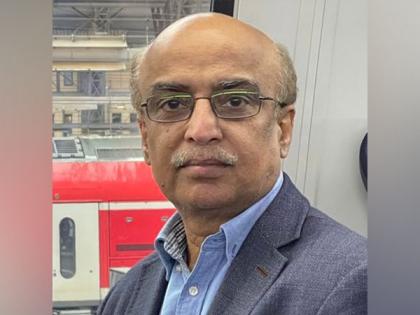JSMM Chairman Shafi Burfat praises India's decisive counterterrorism operation
By ANI | Updated: May 11, 2025 23:07 IST2025-05-11T23:01:15+5:302025-05-11T23:07:37+5:30
Munich [Germany], May 11 : India's recent strikes on terrorist camps located in Pakistani territory have been described as ...

JSMM Chairman Shafi Burfat praises India's decisive counterterrorism operation
Munich [Germany], May 11 : India's recent strikes on terrorist camps located in Pakistani territory have been described as a decisive and strategic response to cross-border terrorism by Jeay Sindh Muttahida Mahaz (JSMM) Chairman Shafi Burfat.
In a press statement, Burfat commended the operation, describing it as "a bold and unambiguous assertion of India's zero-tolerance policy toward terrorism."
Burfat emphasized that the strikes were not merely a tactical action but a demonstration of India's military and strategic capability. "This operation demonstrated India's military and strategic capability while exposing Pakistan's role as a state sponsor of terrorism," he stated. He further warned, "Any force that seeks to harm India through terror will be met with forceful and direct consequences."
India launched Operation Sindoor on May 7 to strike multiple terror sites in Pakistan and Pakistan-Occupied-Kashmir after a deadly attack in Jammu and Kashmir's Pahalgam last month in which 26 tourists were killed.
Burfat highlighted that certain regional powers have attempted to escalate tensions between India and Pakistan, aiming to disrupt India's growing economic momentum, particularly in the context of global capital shifts caused by the US-China tariff war. He claimed that Pakistan was provided with "war equipment, drone technology, missile systems, technical support, and satellite-based intelligence" to serve this agenda. He accused Pakistan's military of acting as a "hired proxy motivated by financial incentives and strategic manipulation."
Despite these challenges, Burfat praised India's leadership for its strategic patience and awareness of the larger conspiracy. "India avoided falling into the trap of an all-out war and maintained its focus on dismantling the terror infrastructure," he noted. India's calculated response, he asserted, demonstrated not only military strength but also diplomatic and strategic foresight.
Burfat further noted that India's operation achieved significant objectives, including the destruction of terrorist launchpads inside Pakistan and the exposure of Pakistan's terror links on the international stage. He highlighted India's ability to maintain moral and ethical superiority during the conflict, with its democratic conduct standing out even amid escalating tensions. India's actions, he explained, sent a clear message against terrorism and expansionism, reinforcing its position as a stable, investment-ready democracy.
"India emerged not only as a military power but as a morally grounded democracy committed to peace and stability," Burfat declared. He concluded that India's counterterrorism campaign was "a courageous expression of national will, moral clarity, and geopolitical vision," effectively exposing Pakistan's longstanding ties with terrorism and affirming that India will not tolerate any form of proxy aggression.
Disclaimer: This post has been auto-published from an agency feed without any modifications to the text and has not been reviewed by an editor
Open in app